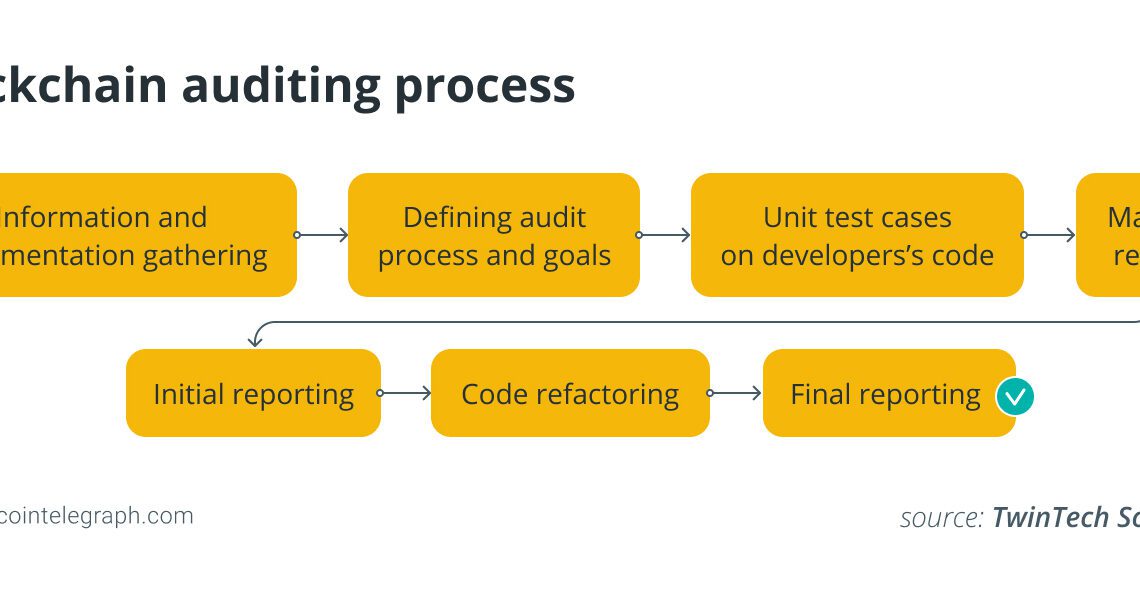Blockchain auditing is the process of examining and verifying the data and transactions stored within a blockchain network. It focuses on assessing the integrity and accuracy of the information recorded on the blockchain to ensure it aligns with the intended rules, protocols and regulations.
Through the audit process, smart contract code is painstakingly examined to identify vulnerabilities of all levels, ranging from minor loopholes to critical weaknesses that could potentially expose millions to risk.
Auditors review and reveal centralization issues, ensure the project code functions as the developer intended, and optimize the code’s efficiency. They address key areas such as mathematical operations, logical issues, control flow, access control and compiler errors. By doing this, the probability of a smart contract vulnerability is substantially reduced, providing an essential safeguard in the world of Web3.
Sheldon Xia, founder and CEO of crypto exchange Bitmart, told Cointelegraph, “Auditing significantly reduces risks associated with smart contract vulnerabilities.”
However, auditing is not a panacea. Many projects often do not have their entire code audited due to time and budget constraints, leaving sections of the code unchecked and potentially susceptible to issues.
Furthermore, audits must be continuous, as code is frequently updated or forked, making single audits insufficient for long-term security.
In addition, there’s the challenge of ensuring that the deployed code is the one that was actually audited and not something different. This emphasizes the need for both transparency and traceability in the deployment process, underlining the necessity of a more holistic approach to security that goes beyond mere code auditing.
Auditing blockchain systems is crucial for several reasons.
Firstly, auditing ensures the verification of transactions recorded on the blockchain. This involves scrutinizing the transaction history, validating inputs and outputs, and confirming that the transactions comply with predefined rules and smart contracts. By doing so, auditing helps prevent fraudulent or erroneous transactions and maintains the integrity of the blockchain network.
Secondly, blockchain auditing plays a vital role in security and fraud detection. Auditors thoroughly review the transactions, and access controls and cryptographic mechanisms to identify unauthorized or suspicious activities within the blockchain network. This aspect is particularly…
Click Here to Read the Full Original Article at Cointelegraph.com News…
























